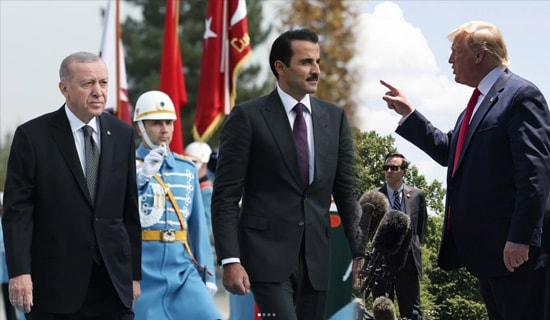
Photo: Dawn.com
In a bold new documentary titled Chan di Chummi ("Kiss the Moon" in Punjabi language), Pakistani filmmaker Khalid Gill explores issues of love and belonging through the lives of transsexuals in Pakistani society.
In an article titled "Kiss and Tell," the Pakistani daily Dawn recently reviewed the documentary, which has now been shown at the Montreal World Film Festival and the Berlin International Film Festival.
Following are excerpts from the article:[1]
"The Documentary Features Several Transsexuals; Focusing in Particular on Three of Them – Ainee, Sonya and Boota – Gill Explores in Depth the Lives of These People Shunned by the Mainstream Society"
"An official selection at the 2009 Berlin International Film Festival and shown at the 33rd Festival des film du Monde Montreal (Montreal World Film Festival), Chan di Chummi (Kiss the Moon) is a revealing documentary about the lives of transsexuals in Pakistan. In the opening scene, script writer and director Khalid Gill says that as a child he was mystified by the transsexuals and he has tried to demystify them in the film.
"Shot beautifully in Lahore, Chan di Chummi is a probing but compassionate portrayal of the sub-culture of transsexuals in Pakistan. I [the reviewer] left the theatre with a heavy heart after seeing the film and couldn't help but think that despite the discrimination and prejudice against them, these transsexuals are just like any other human beings. Why did we fail to treat them as such? Why did we always dwell on the biological differences and not consider their emotions and feelings? Gill has succeeded admirably in his 'passionate attempt to forge intimate contact with the transsexual community.'
"The documentary features several transsexuals. Focusing in particular on three of them — Ainee, Sonya and Boota — Gill explores in depth the lives of these people shunned by the mainstream society. He examines the myths, folklore and superstitions surrounding them, including the misconception that they can bring good or bad luck upon others."
"It is Amazing How in a Culture That Promotes Traditional Family Values, the Transsexuals Function as a Closely Knit Non-traditional Family System"
"It is amazing how in a culture that promotes traditional family values, the transsexuals function as a closely knit non-traditional family system. All of them said how they are more comfortable in their adopted transsexual family than they were with their biological families. Although without much formal education, they were quite articulate.
"Verging at times on a philosophical acceptance of their lot, they expressed profound thoughts on their physical, psychological, and emotional needs, and a realistic understanding of what was achievable. They mentioned the mistreatment meted to them by the general public and their own families. 'People taunt us and mock us; we bear it in silence most of the time. People say we give Pakistan a bad name,' said Ainee."
"My Family Made Me Do All the Work Done By a Woman, But They were Ashamed of Me; They Used to Beat Me because I was Different"
"'My family made me do all the work done by a woman, but they were ashamed of me. They used to beat me because I was different. My parents named me Tariq. I changed it to Sonya because I did not have the feelings of a normal man,' said Sonya. When asked about her identity, she twisted her hands in a trademark clapping motion and said, 'This is my identity."'
"In the Good Old Days When a Male Child was Born People Depended on the Transsexuals for Celebration; Nowadays, It is Television and Imported Fabric That have Become more Important"
"As the camera pans from the 110-year-old Boota who never got the sex change operation she craved for, to Ainee and Sonya, one gets a glimpse of the relationship of transsexuals to mainstream society in the past and now. Boota recalled the days when they were treated with more respect. She said that in the good old days when a male child was born people depended on the transsexuals for celebration. Nowadays, it is television and imported fabric that have become more important. In spite of changing times, all of them said that they earned enough to get by.
"In a world defined by rigid guidelines, where one's identity is either masculine or feminine, Gill has addressed the larger issue of love and belonging. Though content within their transsexual 'family,' all of them expressed the desire for a family life of their own. 'I wish I could find real love… but this cruel world will never let that happen,' said Sonya.
"Produced with German collaboration and released in 2009, the 90-minute Chan di Chummi has music by Ustad Mubarik Ali and Muhammad Shehzad."
[1] www.dawn.com, Pakistan, October 25, 2009.




.jpg)